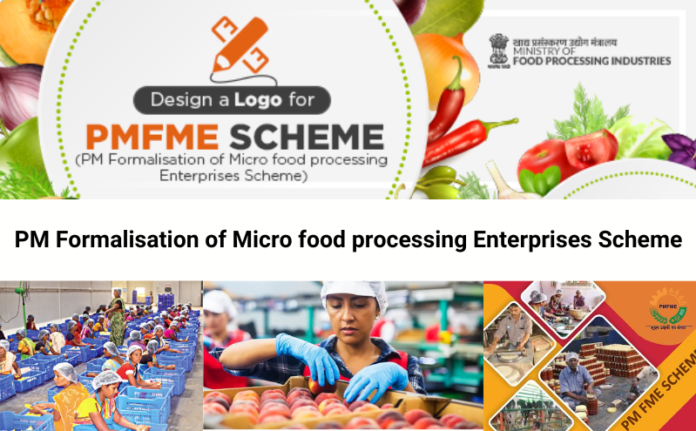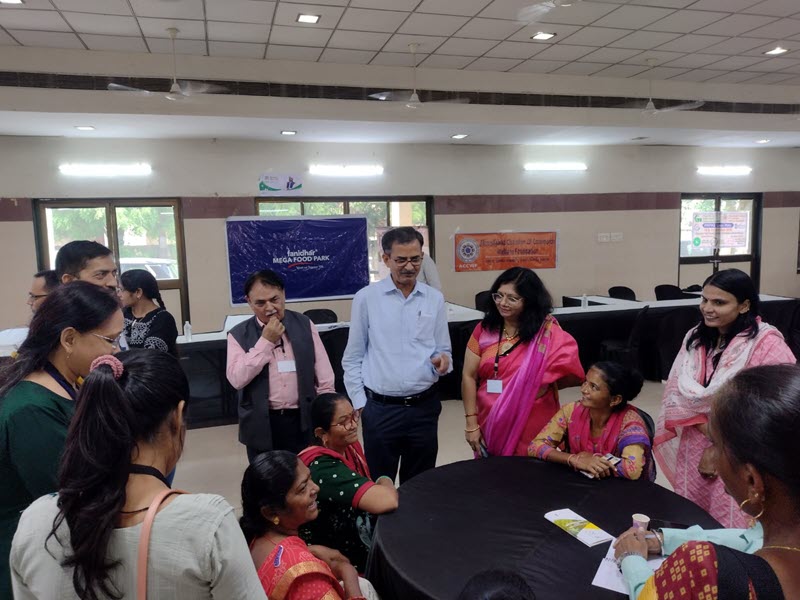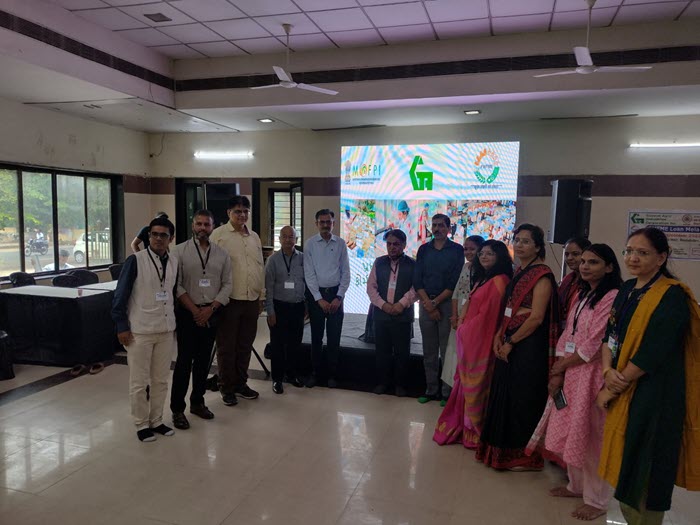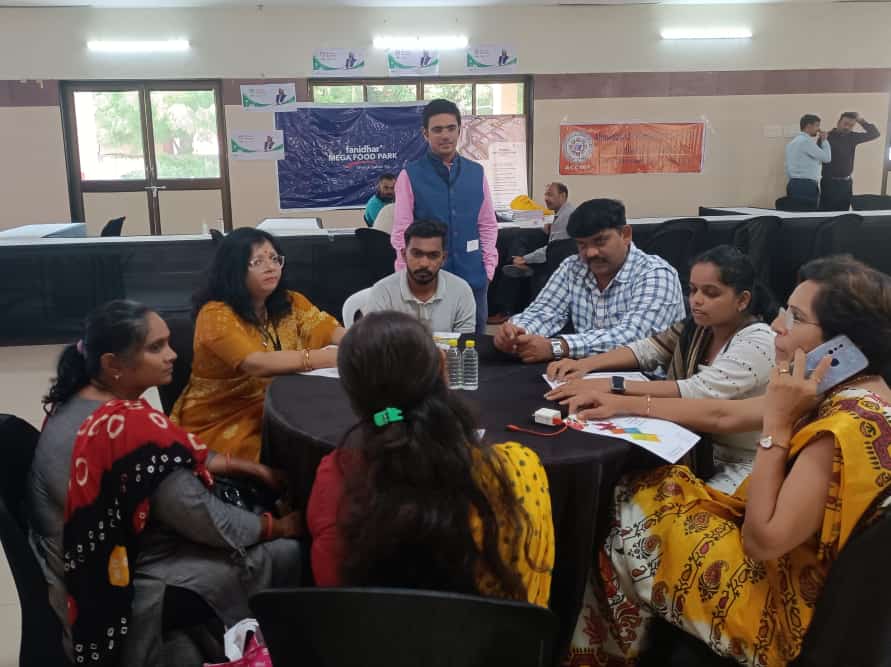A two-day entrepreneurship awareness program for the food processing sector was launched on Monday at Bhaskar Rai Pandya Community Hall, Bodakdev, to inform the food marketers of Gujarat about the Pradhan Mantri Formalization Micro Food Processing Enterprise Scheme.
Gujarat Agro Ind. Corporation Ltd. And Ahmedabad Chamber of Commerce Welfare Foundation jointly organized a first-ever PMFME Loan Mela to help unorganized small and micro level Food Entrepreneurs to gel loans and subsidies under Prime Minister Shri PMFME scheme. Under this scheme, entrepreneurs get a handsome 35% subsidy.
Beneficiaries are the home industry, food stalls, fruit juice, coffee bar, restaurant, farsan, sweets, bakeries, and other food items for the necessary equipment for their business development or for easy financing as per bank rules. For the first time, 10 major banks had set up their stalls at this event.
Other major organizations namely Kalyani Sahsik Mahila Vikas Sangh and Innovative Food Alliance actively participated to make this a successful event.
During the 2 days of this program, about 80 projects out of more than 150 participants were given theoretical labor by various banks who will now be able to get loans and subsidies under the PMFME scheme through an online process.
Mr. Parekh, IAS, MD of Gujarat Agro Industries Corporation Limited Inaugurated this Mela, and Shri M K Kureshi, Director of GAICL supervised operations during the event.
Smt.Hetalben Amin, Shri Rohit Khanna, CA, Sidhdharth Bhatt, and Shri Anil Mulchandani planned and contributed to this.
DK Parekh, IAS, Managing Director, Gujarat Agro Industry Corporation Limited, said, “The Prime Minister’s Formalization of Micro Food Processing Enterprises (PMFME) scheme is one of the flagship programs of the central authorities to help micro enterprises engaged in food processing. Under this scheme, Rs. 10 lakhs limit is provided 35 percent subsidy and for SHGs and companies Rs. An amount of Rs. 3 crores is available. Apart from this, eligible beneficiaries under the PMFME scheme availing of credit-connected subsidy will be able to get the additional benefit of a 3 percent interest subsidy on the interest rate charged by banks. It provides financial, technical, and business support for the upgradation of micro food processing enterprises in the country.“
Living in the Mortgage Fair period, Parekh said, “By this morning, about 500 persons and corporations have registered and we are creative that it will be more than 1,000 by the next day.” By the end of the loan fair on Tuesday, about 100 loan applications will be processed by banks. Generally, it takes a fortnight to clear the loan for two months. Applicants should go to the government’s Convergence Portal and fill out the form with the help of District Resource Persons (DRPS) and upload a detailed project report. The DRP can be paid Rs 20,000 in the step with DPR. DRP will get Rs. A service charge of 20,000 will be paid. The District Nodal Officers will verify the form with the help of the District Local Committee and will be sent to the bank. The plan has been contracted with Union Bank of India as the nodal bank and MoU has been made with 11 PSU banks as official credit partners for the PMFME plan. Many non-public banks like HDFC, Indusind, ICICI, and cooperative banks also offer loans under the scheme.
Eight banks, including PNB, SBI, Canara, Central Bank of India, etc. have put their tables to process the requirements of applicants.
According to PNB Manager, Agriculture – Planning and Development Department Control Mohan Patil, “If loan applications meet all the bank’s eligibility criteria, they will process and clear the loan within 12 working days. In addition, applicants will get more benefits from the bank based on the CIBIL score. ”
The program is being organized at Bhaskar Rai Pandya Community Hall, Bodakdev on the 10th and 11th of October 2022 from 10.30 am to 6.00 pm.
The contribution of the food processing sector has increased from Rs 1.34 lakh crore in 2014-15 to a 9.97% compound annual growth rate (CAGR) in 2020-21 with the gross value added (GVA) in the food processing sector continuing to grow. This share is more than 12-13% of the total output in the registered manufacturing sector in India. However, the food processing sector is a fragmented industry with a few large players and a large number of medium, small and micro enterprises.
There are about 25 lakh units in the unorganized or semi-organized sector, which contributes 74% of the employment in the food processing sector. About 66% of these units are located in rural areas and about 80% of them are family-based enterprises, which sustain livelihoods in rural households and reduce their migration to urban areas. These units are mostly Rs. A capital investment of less than 1 crore and Rs. 5 crores fall under the category of micro-enterprises with turnover. There are many NGOs, self-help groups, farmer producer organizations, cottage industries, cooperatives, and home-based food entrepreneurs, who are involved in the business of food products.
Benefits under the scheme:
- For individual micro food processing units, a credit-linked capital subsidy of 35% of the eligible project cost can be availed with a maximum of Rs 10 lakh per unit.
- For capital investment along the value chain, a 30% credit-linked grant will be made available to FPOs, SHGs, and cooperatives.
- SHG members in the form of grants for the purchase of working capital and small equipment for SHGs involved in food processing. Rs. 40,000 seed capital will be provided.
- 35% credit-linked grant will be made available to SHGs, FPOs, cooperatives, state-owned agencies, and private entrepreneurs for the development of common infrastructure facilities like warehouses, cold storage, and processing facilities.
- Assistance to convert existing micro food processing units into organized units by strengthening their marketing and branding and integrating the supply chain with formal units.
- Increase access to shared eligible services such as storage, incubation facilities, and packaging. Professional and technical support for food processing entrepreneurs.
- Appropriate training and research for individual or group-owned food processing enterprises.





